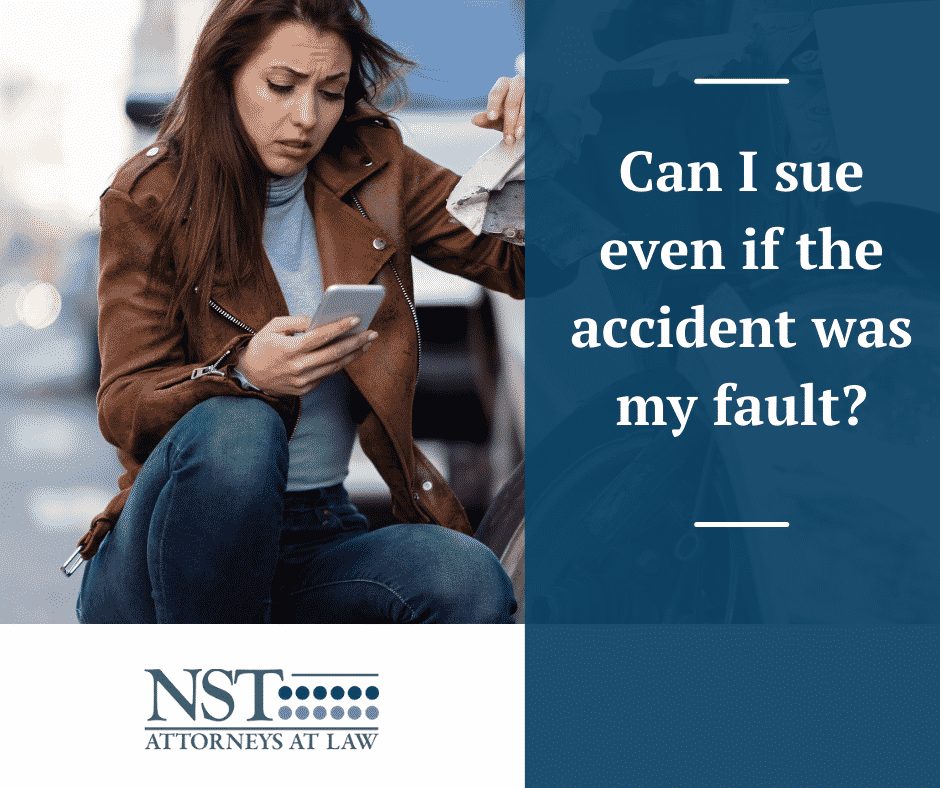Can I Sue Even If the Accident Was My Fault?

Liability Issues in Motor Vehicle Wreck Cases
After an accident takes place, the investigation phase will begin. Whether you can ultimately recover for your losses depends on how fault is allocated. In all states, it is legal for the other driver to point the finger back at you for causing or contributing to the accident. However, just because his or her insurance company pushes back does not mean you cannot recover. You still may be able to pursue a personal injury case even if you contributed to the accident. Calling an experienced car accident attorney who handles cases in your area can help ensure your rights remain protected.
If I have been injured in an accident and it was my fault, can I still pursue a claim?
The answer will depend on the laws of your state. A handful of states follow the contributory negligence rule, which means that you cannot be awarded any damages if you share any of the blame for a car accident. Other states, including Tennessee, Arkansas, Mississippi, Missouri, and Kentucky, follow the comparative negligence doctrine, which means that you can sue the other driver for damages following an auto accident if that driver was also partly at fault.
What are my legal rights if I live in a contributory negligence state?
In these states, you cannot win any damages if you were to blame at all for the accident. This means that even if you are only 1% to blame, then you would not be able to successfully sue for any damages. If you live in one of these states, you will likely be responsible for any expenses and losses you incur as a result of the auto accident. However, you may have medical payments coverage on your own auto insurance policy that will pay toward your medical bills. Be sure to consult with your insurance agent and review your insurance policy to determine if you have this type of coverage.
What damages may I receive if I live in a comparative negligence state like Tennessee?
You may be able to seek compensation for your damages, depending on your level of fault in the accident. In a pure comparative negligence state, such as Mississippi, Missouri, and Kentucky, you may sue the other party even if you are considered more at fault for the accident. However, your recovery will be diminished by your percentage of fault. For example, if you are deemed 60% at fault, your recovery would be reduced by 60%.
Modified comparative fault works differently. In one of these jurisdictions, including Tennessee and Arkansas, you are barred from recovery if you are 50% or more at fault for the crash. This highlights the importance of fully investigating the accident, including speaking with witnesses and potentially retaining experts. You should contact a personal injury lawyer immediately. Liability is often contested for intersection accidents and those involving left turns.
What is the burden of proof in auto accident cases?
The burden of proof in a legal claim is the threshold that a person must meet in court in order to prove his or her case. The burden of proof in a personal injury case is generally a preponderance of the evidence. A preponderance of the evidence means that your proposition is more likely true than not true. This is a much lower standard than the burden of proof used in criminal cases, which is beyond a reasonable doubt. To meet your burden of proof, it may be necessary to retain accident reconstructionist experts. These professionals can visit the crash scene, collect evidence, review measurements, and ultimately re-create the crash, all in an effort to prove what likely took place.
If I can prove fault, what damages may I be awarded?
Generally, you may seek monetary damages to compensate you for your economic and non-economic damages. Economic damages are those damages that have a set value, such as medical expenses, vehicle repair costs, and lost wages. Non-economic damages do not have a set monetary value and include such losses as pain and suffering, loss of enjoyment of life, and loss of consortium. On rare occasions involving particularly egregious behavior by the other party, you may be awarded punitive damages, which are intended to punish the wrongdoer and prevent others in the community from engaging in such conduct going forward.
The experienced legal team at NST Law is committed to using our skills and resources to get you the maximum compensation possible in your case.

Call Our Law Firm for a Free Case Evaluation
Nahon, Saharovich & Trotz is a large regional personal injury law firm, serving accident victims throughout Tennessee, Arkansas, Mississippi, Missouri, Illinois and Kentucky. For a free consultation with a lawyer on how we can help you, complete our online form.
